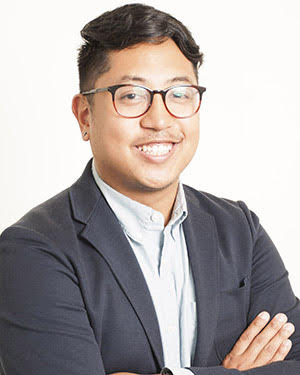Lasse Lindahl’s goal for the MARC U*STAR Scholars program is to “light the fire in the belly so students are hooked on science.”
Lindahl, director of the MARC U*STAR program at UMBC and professor of biological sciences, founded the UMBC chapter of the intensive research training program with a grant from the National Institutes of Health in 1997. The program engages individuals from historically underrepresented groups in the biomedical sciences, with the goal that they go on to complete advanced degrees. UMBC’s MARC U*STAR program celebrated its first alumnus to earn a Ph.D. in 2004, and just honored its 100th Ph.D.
MARC U*STAR stands for Maximizing Access to Research Careers Undergraduate Student Training in Academic Research. Students receive a yearly stipend, significant tuition assistance, and funding for travel to conferences where they present their research. Biomedical experts present regular seminars to MARC students on campus. With 40 students in the program on campus each year, UMBC’s MARC U*STAR program is now one of the largest in the country; 386 students have participated since its inception.
The cornerstone of the program is research experiences. Students are paired with a research mentor at the outset of the program and conduct research during the school year and over the summer. “Research is not just a summer excursion,” says Lindahl, “It is a lifelong pursuit.”
He and associate director Jackie King Ph.D. ‘09, psychology, are instrumental in helping students obtain research opportunities off campus as well as helping with the graduate school application process, from selecting appropriate schools to preparing for interviews. Keith Harmon, director of the UMBC Meyerhoff Scholars Program, also mentors MARC students, many of whom are also Meyerhoff Scholars.
King sees mentorship as essential to the program’s success, connecting students directly with people “who have high expectations, but also provide resources and support.”
MARC Scholar and 2016-17 Goldwater Scholar Andreas Seas ‘17, chemical engineering, says, “The support I get from Dr. King and Dr. Lindahl is really amazing,” particularly as he has continued to seek out new research opportunities. Seas regularly shares with them the setbacks and his accomplishments on his path to a research career.

Erwin Cabrera ‘10, biological sciences, was the 100th MARC Scholar to complete a Ph.D., earning his in 2016 in Basic Biomedical Sciences – Neuropathology from the New York University School of Medicine. “As an undergraduate filled with self-doubt, the MARC program, and especially Mrs. Taifa Hibbert Simpson (the assistant director at the time), provided the love and confidence that allowed me to excel,” he shares. The research experience bolstered his confidence, too. “The MARC program allowed us a safe space to be who we were and incorporate the title of ‘researcher’ into that mosaic,” Cabrera reflects.
Lindahl hopes the program will have a “multiplier effect,” because MARC alumni “serve as role models for underrepresented groups,” he says. Cabrera has embraced that charge, as he takes on a new role as associate director of the Research Aligned Mentorship program at Farmingdale State College, part of the State University of New York.
The MARC program “solidified my career passion for work in higher education,” Cabrera says. “It showed me that mentorship is a key component in a student’s success, and that I would like to contribute the same wisdom to others that was given to me.”
Another of Lindahl’s goals is to help students “see the impact research has on the larger community.” Seas has taken that to heart. After homing in on his passion through undergraduate research, he plans to pursue an M.D.-Ph.D. related to vascular surgery. His favorite part of UMBC’s MARC program, he says, is “being surrounded by people that are interested in science and want to improve people’s lives with science.”
Image: Andreas Seas ’17 presents his research at URCAD 2016; Photo Marlayna Demond ’11 for UMBC. Erwin Cabrera ’10, photo courtesy Farmingdale State College.





